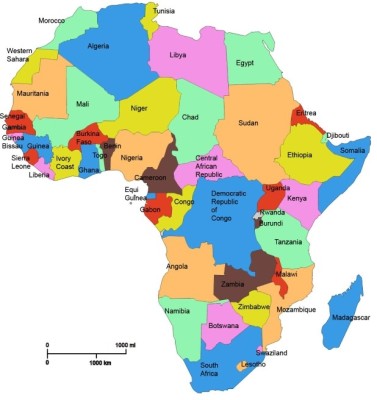“Africa”, as a concept, may evoke thoughts of starving children, uncomfortable living conditions, or social depravity. Within my own subconscious mind, and I believe the minds of most Americans, Africa represents the continent with too few natural resources to keep pace with the modernization of the rest of the world. As an emerging market, I had no clue of the natural wonders and significant benefit it will someday offer globalization beyond an additional middle class to purchase western goods.
Guest Blogger: Micah Northcutt was a member of the CEL Practicum team working with The Women’s Bakery consulting project in Rwanda.
After leaving Kigali with a complete about-face as to the global potential of the Rwandan work-force, the team chose to spend a week touring Zambia, Botswana, and South Africa.
 On previous adventures, I toured the Grand Canyon and Niagara Falls, I ate my way through most of Europe, and swam in the waters of the Caribbean. However, never had I felt the mist 100 meters above Victoria Falls. Never in my life had I slept on a safari in an open field as the world’s largest land animal passed a few feet behind my tent and the king of the jungle roared in the distance. On the southernmost tip of Africa I swam with the Great Whites, drank wine that rivals the grapes of Italy, and consumed some of the best seafood of my life.
On previous adventures, I toured the Grand Canyon and Niagara Falls, I ate my way through most of Europe, and swam in the waters of the Caribbean. However, never had I felt the mist 100 meters above Victoria Falls. Never in my life had I slept on a safari in an open field as the world’s largest land animal passed a few feet behind my tent and the king of the jungle roared in the distance. On the southernmost tip of Africa I swam with the Great Whites, drank wine that rivals the grapes of Italy, and consumed some of the best seafood of my life.
It is true that (currently) visiting Africa requires some discomfort. Air conditioning is sparse, bottled water is typically required, and the mosquitoes can get pretty annoying. However, the thought that the African market is emerging purely as a beneficiary of the western world is silly. The touristic experiences following our work in Rwanda actually enlightened me to the personal benefit I as a global citizen will receive as Rwanda and the rest of Africa enter the modern markets. By helping to improve nutrition and the economic base within Africa, I am helping to open the doors of Africa to my children and grandchildren.
Africa is not a helpless continent of dirt and poverty. It is a jungle of natural wonders waiting to be embraced by the global markets. Work is required, but the entire world will benefit.
Related blog posts:
Why I created The Women’s Bakery
A visit to rural Rwanda







 On previous adventures, I toured the Grand Canyon and Niagara Falls, I ate my way through most of Europe, and swam in the waters of the Caribbean. However, never had I felt the mist 100 meters above Victoria Falls. Never in my life had I slept on a safari in an open field as the world’s largest land animal passed a few feet behind my tent and the king of the jungle roared in the distance. On the southernmost tip of Africa I swam with the Great Whites, drank wine that rivals the grapes of Italy, and consumed some of the best seafood of my life.
On previous adventures, I toured the Grand Canyon and Niagara Falls, I ate my way through most of Europe, and swam in the waters of the Caribbean. However, never had I felt the mist 100 meters above Victoria Falls. Never in my life had I slept on a safari in an open field as the world’s largest land animal passed a few feet behind my tent and the king of the jungle roared in the distance. On the southernmost tip of Africa I swam with the Great Whites, drank wine that rivals the grapes of Italy, and consumed some of the best seafood of my life.